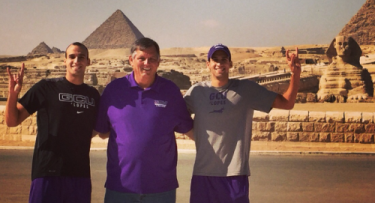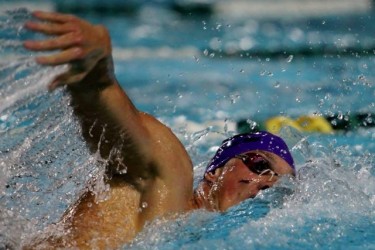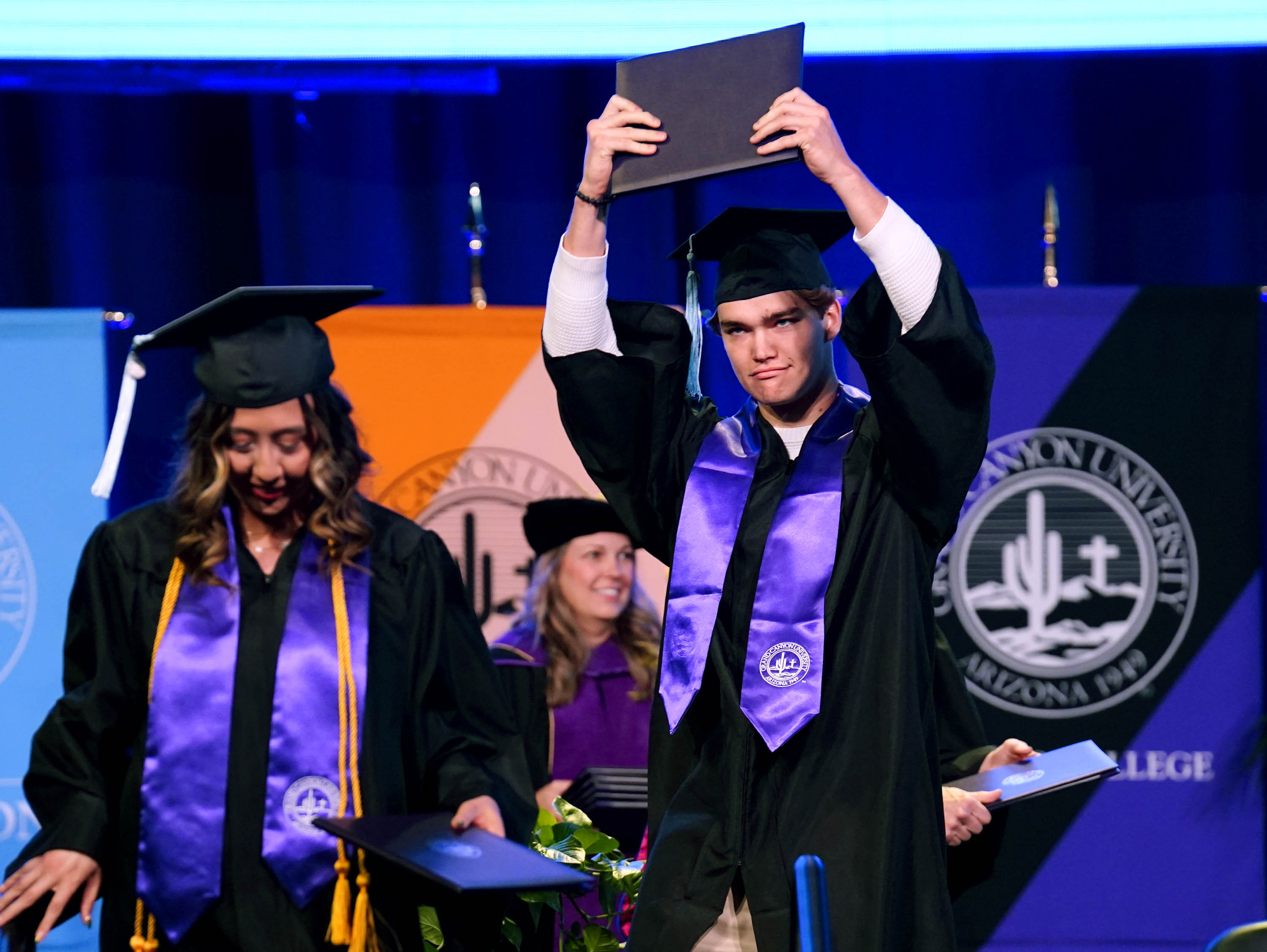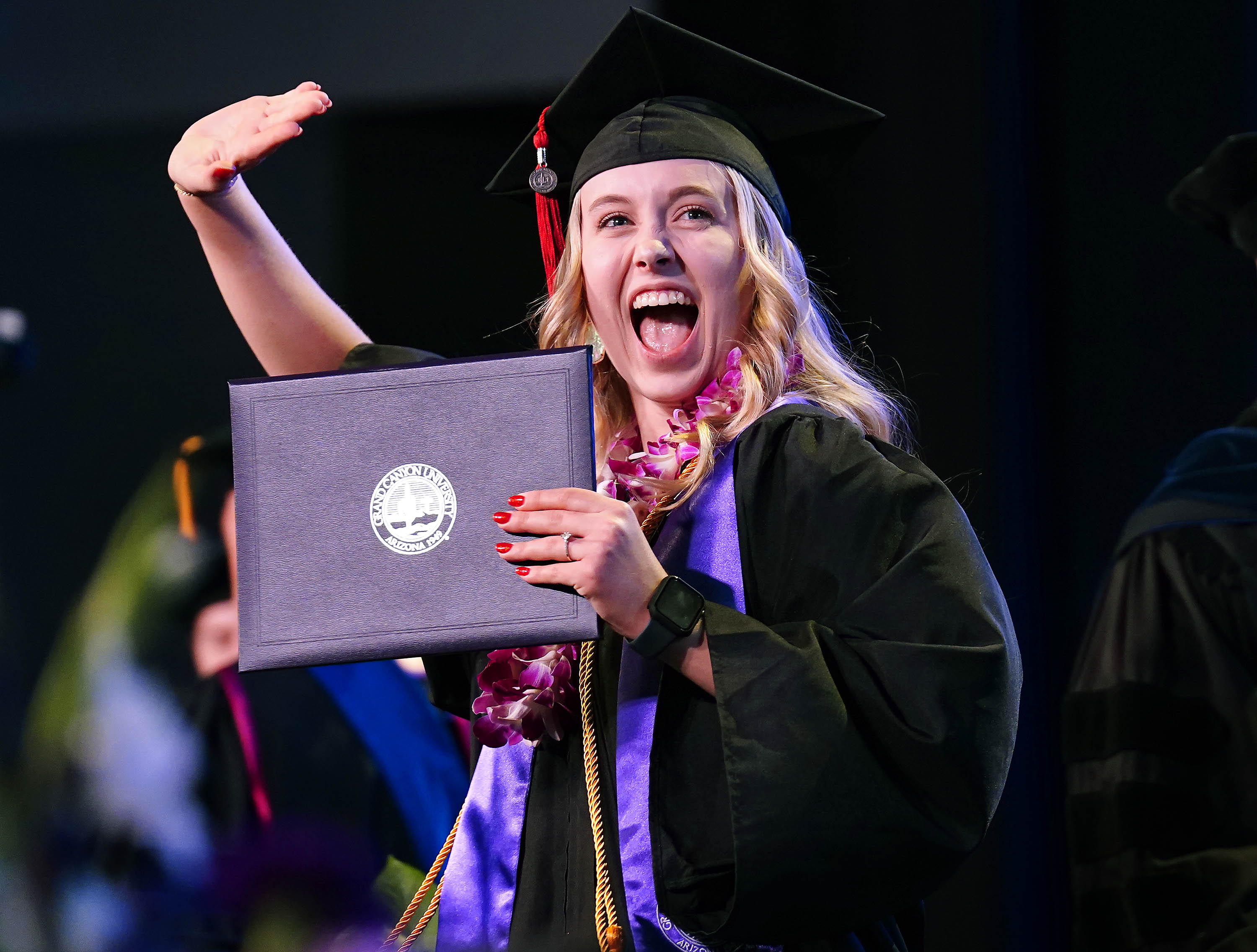By Cooper Nelson
GCU Today Magazine
When Illya Glazunov wants information on the crisis in Ukraine, he’ll turn on the news or check Facebook. But he tries not to think about his war-torn home.
A year ago, fighting broke out between pro-Russian separatists and the Ukrainian military over the Crimean Peninsula to Ukraine’s southeast, which had voted to join Russia. The United Nations reported that more than 5,300 people had died in the conflict by the end of February. Glazunov’s mother lives in the eastern Ukrainian city of Donetsk, where some of the heaviest combat has occurred. For him, remaining oblivious to her plight and the fate of his homeland can be difficult.
“I don’t like to talk about home,” said Glazunov, a junior finance major at Grand Canyon University. “When I call my parents, they’re always talking about war and people dying. It’s always in your head.”
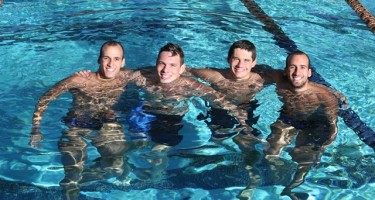
Glazunov, 22, is one of five GCU swimmers from Ukraine. GCU is home to 72 international student athletes from 33 countries, ranging from Australia to Kazakhstan to Canada, but few understand the strife of the Ukrainians.
Glazunov arrived at GCU in advance of the 2013 season, just a few months before the fighting and protests began. His busy schedule and poor Internet connection between Phoenix and Donetsk make communications with his family difficult. He is able to talk with his father in Russia every couple of weeks but hears from his mother and younger brother less often. Anxiety over their safety is a daily reminder of the turmoil at home.
Last summer, Glazunov was living in Seattle when he received Facebook notifications of bombings in Donetsk. Separatists were attempting to take control of the city’s airport, near where his mother lives. He frantically tried to reach her but couldn’t get through. Eventually, his friends in Ukraine contacted her and relayed the news she was OK. Glazunov said it was the scariest moment of his life.
Four other Ukrainian athletes — juniors Stanislav Saiko and Iegor Lytvenok, sophomore Iryna Glavnyk and freshman Fedir Bolychev — spend days or weeks unaware of what is happening to their country or families. They rely on one another, sharing news from home, helping with English and homework assignments and offering support when one of them feels overwhelmed by the uncertainty.
Saiko, 22, came to GCU the same day as Glazunov and Lytvenok. His family lives in Kirovograd, a central Ukraine city that is farther from the fighting, but the distance hasn’t made coping any easier. Some of his friends have been killed while he has been at GCU, and he knows of another who was abducted and has been missing for months.
Americans, he said, don’t understand the worry that weighs on Ukrainians’ minds every day.
“It’s hard for people here to understand what we’re going through because what they see on the news isn’t what it’s really like. Being there and seeing it in person, it’s much worse,” said Saiko, a sports management major who goes by “Stas.”
“I don’t really even know what’s happening there. I’m not home, I’m here, 6,000 miles away.”
Egyptians know the feeling
When Glazunov, Saiko and the other Ukrainians need advice, they don’t have to look far.
Mazen and Youssef Elkamash, twin brothers from Alexandria, Egypt, joined the GCU swim team the same year as the Ukrainians and know what it feels like to live through war. Bloody protests that eventually forced President Hosni Mubarak to resign erupted across Egypt in February 2011. More than 860 people died in the monthlong revolution.
The twins, 19, remember tanks in the street outside their home and looters robbing buildings during the night. The government shut down Internet and cable lines to prevent further uprisings.
“You could hear people shooting outside when you slept,” said Mazen, who like his brother is a sophomore business major.
Youssef said, “You couldn’t make a call, you couldn’t watch TV, you couldn’t do anything, just sit like you are in a cave. We weren’t really scared, but it was tough.”
The Elkamash brothers rarely left their house during the revolution They swam when they could and occasionally joined protests to stave off boredom.
They visited their older brother, a swimmer at the University of South Carolina, in December 2012 and decided they wanted to attend college in America.
They found GCU online and contacted coach Steve Schaffer to join the swim team. Leaving Egypt was difficult — they dodged bullets and passed tanks on their way to the airport and almost didn’t make it out.
The situation in Egypt has since calmed. The twins talk with their mother often and don’t worry about her safety. They offer to talk to the Ukrainians about their experiences when they need support.
“It’s different for Youssef and me than with the guys from Ukraine,” Mazen said. “We were there with our family and friends. There were still tanks and stuff when we left, but it was normal.”
“We know what it’s like and are here to talk when they need it,” Youssef said.
Team’s success helps
Schaffer said he can tell by the Ukrainians’ body language when news at home is bad. But they never complain or take practices off, he said.
“I think in one way or another all swimmers use swimming as an escape from what’s going on in their lives,” said Schaffer, who swam at UCLA and has been GCU’s coach for seven years. “They’re some of our best swimmers. The reason we wanted to bring those types of guys in is because they’re fast, and they’ve helped us this year.”
Glazunov agrees that the team’s success — and preparing for the recent Western Athletic Conference championships — provided some relief. He and Saiko are simply happy their families are alive. For now, they try to focus on swimming and school and block out everything else.
Glazunov and Saiko have urged their parents to leave Ukraine but know there is nothing they can do. They haven’t been home since moving to Phoenix and don’t know when or if they can return.
They don’t worry. Maybe it’s better that way.
“I didn’t bring anything to remind me of home except clothes and my (swim) suit,” Saiko said. “I don’t worry about it. After what’s happened there, I just cannot go back.”
Contact Cooper Nelson at 602-639-7511 or [email protected].

